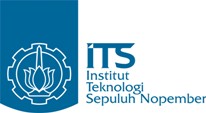Analysis of FSW and TIG Aluminium 5052 Welded Joint Strength Due to The Effect of Working Temperature
Abstract
Keywords
Full Text:
PDFReferences
American Welding Society, AWS - Standard Welding Terms and Definitions. 2010.
A. P. Mouritz, Introduction to Aerospace Materials. 2012.
M. Z. Prawira and S. J. Sisworo, “Pengaruh Perbedaan Suhu Terhadap Kekuatan Impact Alumunium 5083 Hasil Pengelasan Tungsten Inert Gas,” J. Tek. Perkapalan, vol. 3, no. 3, pp. 362–370, 2015.
M. A. Dewantara, H. Yudo, D. T. Perkapalan, F. Teknik, U. Diponegoro, and K. Tarik, “Analisa Pengaruh Gas Pelindung Argon Grade A dan Grade C Terhadap Kekuatan Impact Dan Tekuk Sambungan Butt Joint pada Aluminium 5083,” vol. 5, no. 2, pp. 367–373, 2017.
A. R. Adam, S. Jokosisworo, and Samuel, “Pengaruh Kuat Arus Listrik, Temperatur, dan Variasi Sudut Kampuh Terhadap Kekuatan Impact Alumunium 5083 Pengelasan GTAW dengan Gas Pelindung Helium,” vol. 4, no. 1, pp. 297–305.
R. P. Putra et al., “Pengaruh Arus Listrik Dan Temperatur Terhadap Kekuatan Tarik Dan Impact Alumunium 5083 Pengelasan GMAW (Gas Metal Arc Welding),” J. Tek. Perkapalan, vol. 4, no. 1, pp. 152–161, 2016.
A. Isworo, U. Budiarto, and S. Jokosisworo, “Analisis Perbandingan Kekuatan Impak, Tarik, Tekuk dan Mikrografi Pada Alumunium 6061 Pasca Pengelasan Tungsten Inert Gas (TIG) dengan Media Pendingin Air Laut, Air Tawar dan Udara,” Tek. Perkapalan, vol. 5, no. 2, pp. 421–430, 2017.
R. Wurdhani, U. Budiarto, and W. Amiruddin, “Pengaruh Perlakuan Panas (Heat Treatment) Normalizing Terhadap Kekuatan Impak Alumunium 6061 Pengelasan MIG dengan Variasi Posisi dan Bentuk Kampuh,” vol. 9, no. 1, pp. 70–78, 2021.
M. Budi Nur Rahman, A. Widyo Nugroho, and B. Satriya Wardhana, “Pengaruh Feed Rate dan Kecepatan Putar Pin Tool Friction Stir Welding (FSW) terhadap Kekuatan Tarik dan Kekerasan Aluminium 5052,” JMPM (Jurnal Mater. dan Proses Manufaktur), vol. 2, no. 2, pp. 83–95, 2018, doi: 10.18196/jmpm.2224.
A. Nurhafid, S. Jokosisworo, and U. Budiarto, “Analisa Pengaruh Perbedaan Feed Rate Terhadap Kekuatan Tarik dan Impak Alumunium 6061 Metode Pengelasan Friction Stir Welding,” J. Tek. Perkapalan, vol. 5, no. 1, p. 120, 2017.
DOI: http://dx.doi.org/10.12962%2Fj25481479.v7i3.13353
Refbacks
- There are currently no refbacks.
 |  |  |  |
| |  |  |
|
|
|
|
|
P-ISSN: 2541-5972
E-ISSN: 2548-1479
IJMEIR journal published by Department of Marine Engineering, Faculty of Marine Technology, Institut Teknologi Sepuluh Nopember Surabaya Indonesia under licenced Creative Commons Attribution-ShareAlike 4.0 International Licence. Based on https://iptek.its.ac.id/index.php/ijmeir/


1.png)
